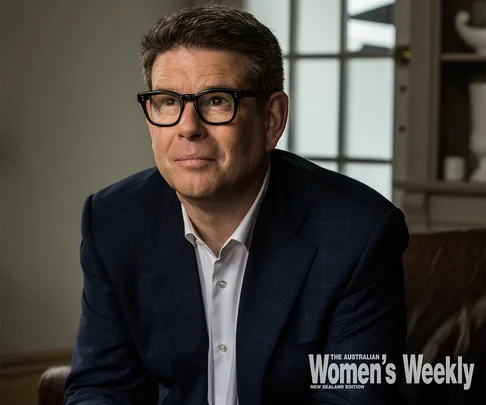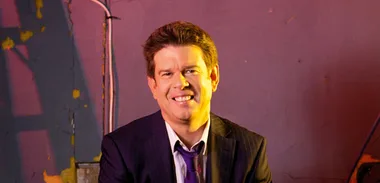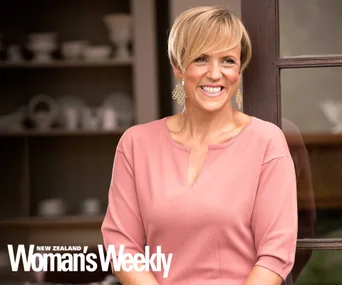Multi award winning broadcaster John Campbell has attached his considerable mana to the mast of the network he once locked horns with in dire competition.
“At TV3 I was working with great people, we were the underdog, we had fewer staff, fewer resources, fewer viewers. It felt like a kind of adventure,” he says of his former role.
He knows he’ll find it different at the state broadcaster. But he’s happy to be back on the telly, admitting, “I’ve missed it.”
His new role is that of a roving reporter/presenter for TVNZ.
From all accounts this job was tailor-made for him. He’s a free agent, to roam at will seeking truth and justice in the Campbell way.
He’s come to the job by way of his stint on Radio New Zealand’s nightly current affairs show, Checkpoint. Last year he was internationally recognised as the AIB (the Association of International Broadcasters) Presenter of the Year. RNZ was sorry to lose him.
“I loved the immediacy of radio; it’s instantaneous. You can always pick up the phone [to talk to people] but to be a television reporter you have to go and visit people, that’s the thing I love the best. I want to tell stories, as many as possible.”
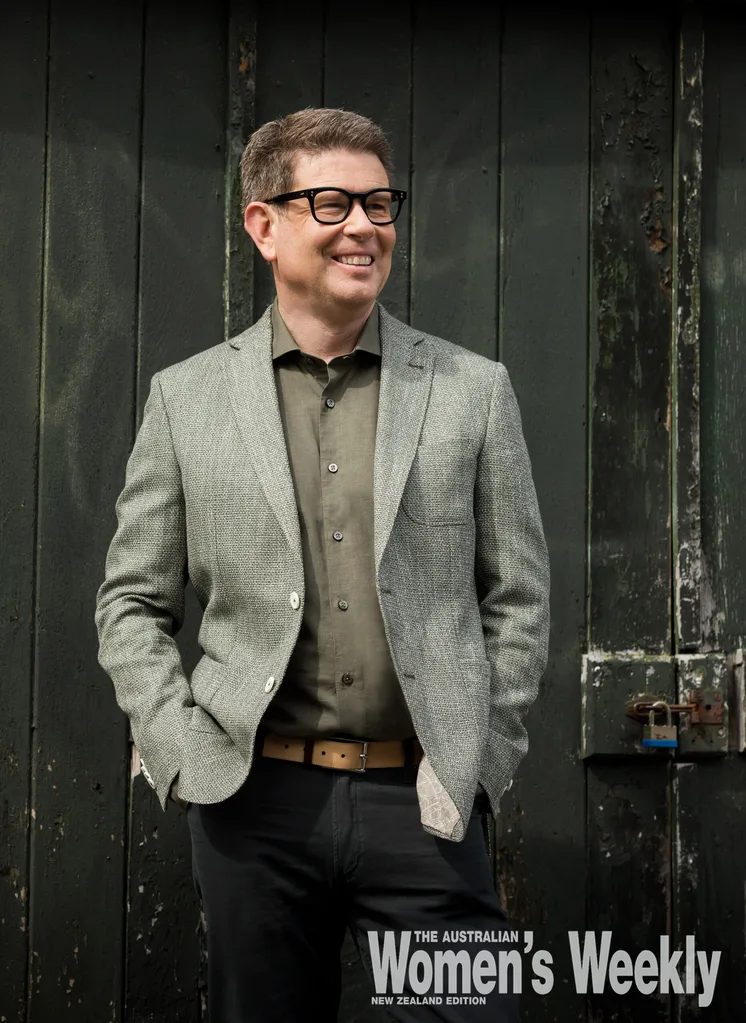
John is a warm, sensitive person with a genuine concern for his fellow man. He is particularly drawn to those people for whom life is tough.
“I’m increasingly interested in the kind of lives not being lived because of economic deprivation, especially in our biggest cities. People with jobs who are not making ends meet. They’re doing everything we ask of them and still they’re struggling. It’s really important these people have a voice. I still want to do journalism that matters.”
He’s a crusader. Injustice and unfairness are anathemas to him. While others will do similar stories, it’s his tenacity, he believes, that sets him apart.
Like a dog with a bone, he gnaws away at a subject, over and over and over again, until he can bring about change.
“If you repeat a story often enough, people become embarrassed,” he says simply. That was his strategy on Campbell Live.
He has highlighted the plight of children going to school hungry, the frustrations of those caught up in the bureaucratic nightmare of insurance claims in post-earthquake Christchurch, the anguish and frustration of the Pike River families striving to find answers to their questions about the mining disaster.
He’s proud of those stories.
In storytelling it’s important to “be authentic and true to yourself,” he says. Sometimes it’s been tough to handle.
“Stuff I’ve seen in this job has left a deep sadness in me. I often find myself being devastated in a way. I don’t believe in karma, too many bad things happen to good people.”
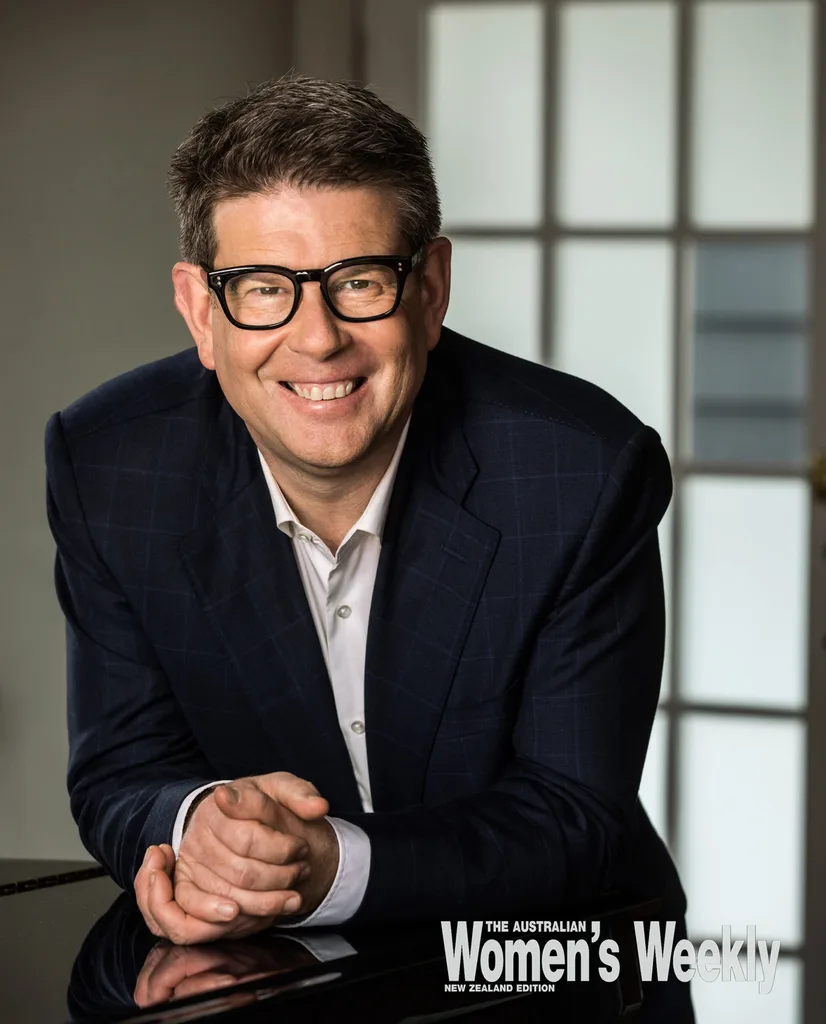
John was born in the summer of 1964 to Jim and Wendy Campbell in Wellington.
Jim was the son of an RAF pilot. “Dad came to New Zealand sporting a plummy English accent that he promptly tried to lose on arrival.” (There’s the root of those trademark rounded Campbell vowels.)
Jim Campbell became a businessman. He set up the fuel company Rockgas and would later go on to become the CEO of the successful 1987 Rugby World Cup. He died earlier this year.
John’s mother, Wendy, a Kiwi of Scandanavian heritage, was a stay-at-home mum, looking after her son and, six years later, a daughter, Sally.
Sally Campbell has landed in a similar industry to her brother. She runs Somesuch & Co, an award-winning TV and film production company with offices in London and LA.
John’s mum discovered food when her son was in his early teens and became a notable chef, starting two restaurants – Culinart in Wellington and The French Bistro in Martinborough, the latter given a glowing review in The New York Times, John tells me proudly. The reviewer claimed ‘eating there was an epiphany’.
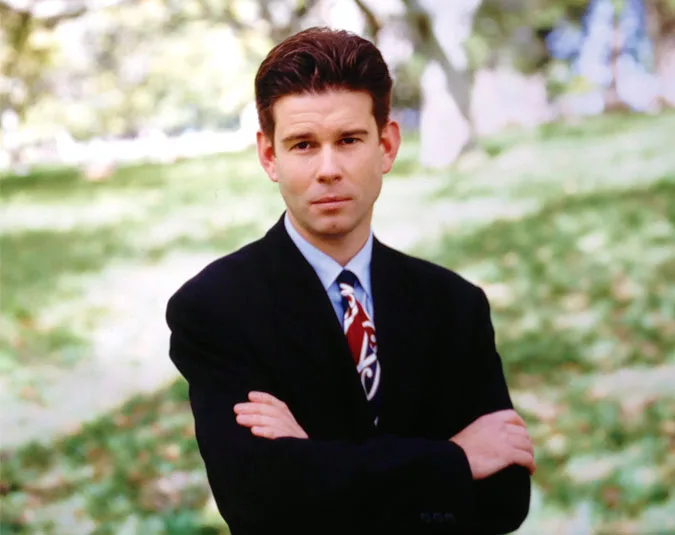
John is widely known as “a lovely guy.” And yes, he is. He looks for the good in people and is often quoted as saying, “You have to leave people at least as well as you found them.”
He credits his mum for instilling that in him. “She would insist that everyone was treated with respect, dignity and decency; those were definitely values I learnt at home. There was a strong sense of collective responsibility, being the best that we can be.”
John’s was a typical Kiwi childhood of the 1960s. “Nothing flash,” he tells me. “We never struggled for anything, it was simple and good.” The family would go on road trips together to visit relatives the length of the country.
At school at Wellington College he made “beautiful” friends – they are friends still; one of them he talks to every day.
“In hindsight,” John says, “although it was a very fine school, it was probably not the school for me. Back then, it was very conservative and by around 14 I began to realise I’m not conservative.”
The cane was still in use. “I thought there was something fundamentally wrong about an adult beating a child.”
He’s a little rueful about his teenage years. “I wish I’d enjoyed them more rather than feel I had to rail against things.” John was about 18 when he discovered “that you could be joyful”.
“It was a revelation. I thought you had to be serious always. At uni I fell in with a crowd to whom I owe an enormous debt. They were optimistic people, there was constant laughter. It was a magic period at Vic, I loved it.”
He and his mate Tim were “gorgeously naughty”. When I ask him what sort of naughtiness, he thinks for a while.
“We would go to a succession of Chinese restaurants in Wellington and eat vast quantities of chicken fried rice three times in a night. There was a bottle store in Willis Street which never asked for ID, they would have sold to a foetus… we drank McWilliams Port. Shit it was fun!” he enthuses.
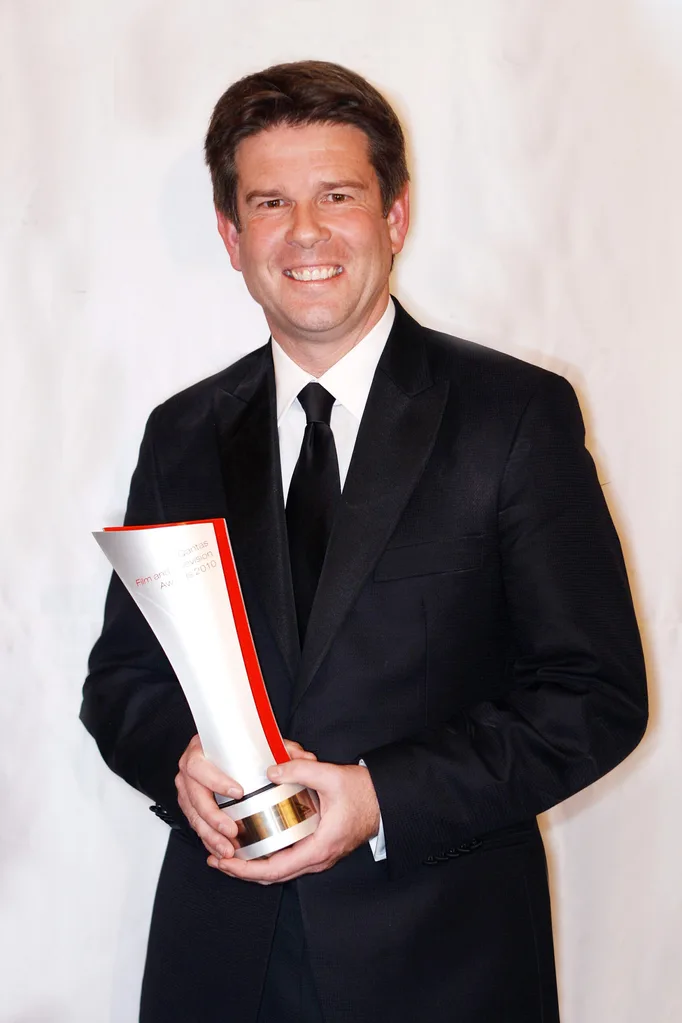
It was at Vic, he gleefully tells me, he discovered student radio and girls. He was doing a BA in English; among his lectures, Women’s Studies. He was the only male in a class of 80.
John reckons he was lucky to strike a golden period in the English department. Renowned Shakespearean scholar, Professor Don McKenzie, was there, as were poets Bill Manhire and Harry Ricketts.
He is a dyed-in-the-wool rugby fan.
One of his biggest wins on Campbell Live was the campaign he ran to get the All Blacks to play in Samoa. He was part of the commentary team for the match.
He loves nothing better than watching his 15-year-old son James play for his St Peter’s school team, unbeaten this season, he tells me proudly.
John played at school, and at university did anarchic “alternative” rugby commentaries for student radio under his alter ego “Sparky Plug” with his mate Jimmy Scott, aka Friendly Brains. “I’m eternally grateful none of those commentaries survive [on tape],” he grins.
As luck would have it, one of his first assignments for TVNZ has been to head to Japan with the All Blacks. I love those boys,” he tells me enthusiastically.
He has a lot to thank rugby for. It was those anarchic commentaries that set him on track to a career in broadcasting.
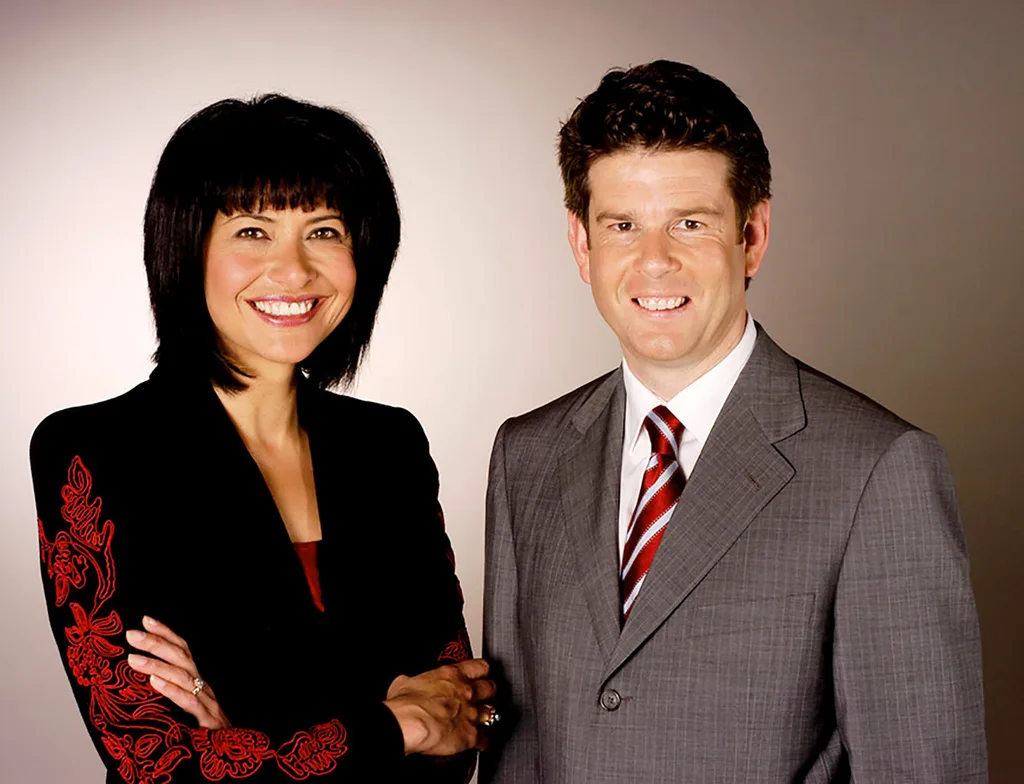
Post-uni, John found himself working as a share trader at Francis Allison Symes. Apparently the company had thought his English degree would be a bonus in writing research reports.
He wasn’t cut out for share trading though. “They were very kind to me but I was shite at it,” he laughs.
Then one night a Radio New Zealand news boss, Glyn Jones, was watching an All Black’s test with John’s then boss. Glyn told him to turn off the sound and listen to these “lunatics”. It was Sparky Plug and Friendly Brains.
“That’s our John Campbell!” exclaimed the sharebroker.
The following morning Glyn was on the phone offering him a job on radio as a business reporter. That was in 1989. “I never set out to become a journalist, it happened by accident,” John confesses.
By 1991 he’d made the move to TV3. He was working in the parliamentary press gallery a year later and then moved on to reporting for the channel’s primetime current affairs show 20/20.
Along the way he earned numerous industry awards for his reporting and then came the job that made him a household name, as a news anchor with Carol Hirschfeld.
It was a seven-year onscreen partnership that flourished, based on mutual respect. Their chemistry, he believes, was inherently there, they shared a love of the same things – books, music – “more or less,” he says. Carol would go on to become his producer on his nightly news show, Campbell Live.
“Being on TV is like being in a sports team, you know you’re going to be dropped.”
The axing of Campbell Live, though, still rankles.
He acknowledges that although the word of mouth about his show was hugely positive, those enthusiastic backers were not reflected in the viewing figures.
The ratings were not good. TV3 bosses gave him seven weeks to turn things around.
During that time the show rated its socks off. “We forged a kind of contract with viewers, a sort of pact, the only way it would be meaningful would be if they tuned in… and they did.” But in the end the show was canned.
One week later, John Campbell said his goodbyes and left the network that had been home for nearly 20 years.
It was a dark time. He retreated into himself, deeply hurt.
“It was a brutal, hurtful process. It was like a relationship break-up. I internalised it, went for long walks, saw friends for lunch, things I never did.”
Eventually Radio New Zealand offered him a job, revitalising their flagship nightly show, Checkpoint.
“I needed to work,” he admits frankly. His boss would be Carol Hirschfeld, then head of content at RNZ, and his producer, Pip Keane, who had previously produced Campbell Live.
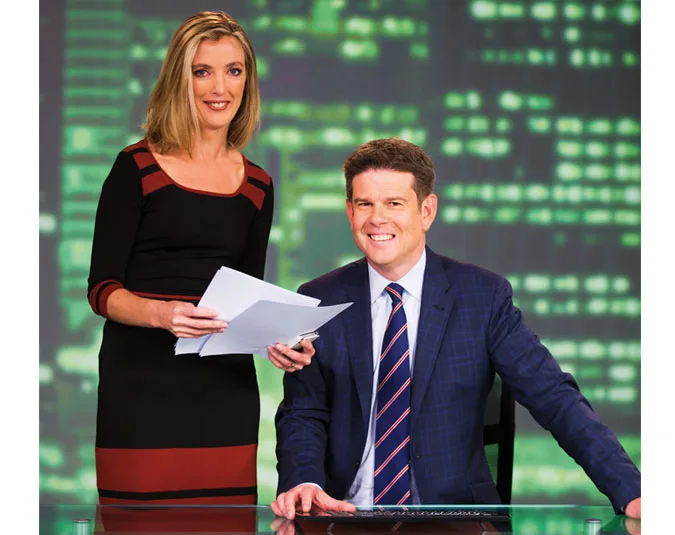
John Campbell on the set of Campbell Live with producer Pip Keane
John met his wife, documentary editor Emma Patterson, at TV3 the year he started in television.
“I was earning $38,000 and wearing a suit I’d borrowed from my father.”
Emma is a notoriously private person and steers well clear of the limelight. They have two children, daughter, Alex, 17, and son James.
When I ask what he hopes for his children, he tells me simply, “That they’re happy. I have enough faith in them to know that their happiness will arise from doing something that matters.”
Away from the box you’ll find him hanging out with Emma and their kids, walking Cosmo, their very cute, tousled Jack Russell /Schnauzer cross. And listening to, in his words, “achingly sad” indie songs.
American Sharon Van Etten and Kiwi songstress Tiny Ruins are among his current playlist. He’s also a fan of hip hop. “I love it, that’s where the real risks are being taken.”
He is a family man, not gregarious. “I don’t go out unless I know people really well.”
Like many in the public eye, John is a contradiction.
“Being in TV is like a form of dress-up,” he confesses. “People expect you to be larger than life; by creating lots of noise you can keep the world at bay.
“I’m shy. I’m doing a job and I’m protective of my private life. I see what television has done to people. Some people forget who they are. It turns them into someone they didn’t intend to be. A large number of people try to stay afloat and can’t. Few people survive [a career in television] totally intact.”
Salutary words as he embarks on another big challenge. But you get the feeling this 54-year-old is comfortable in his skin, aware of who he is and what he has to offer. He intends to float and flourish.
